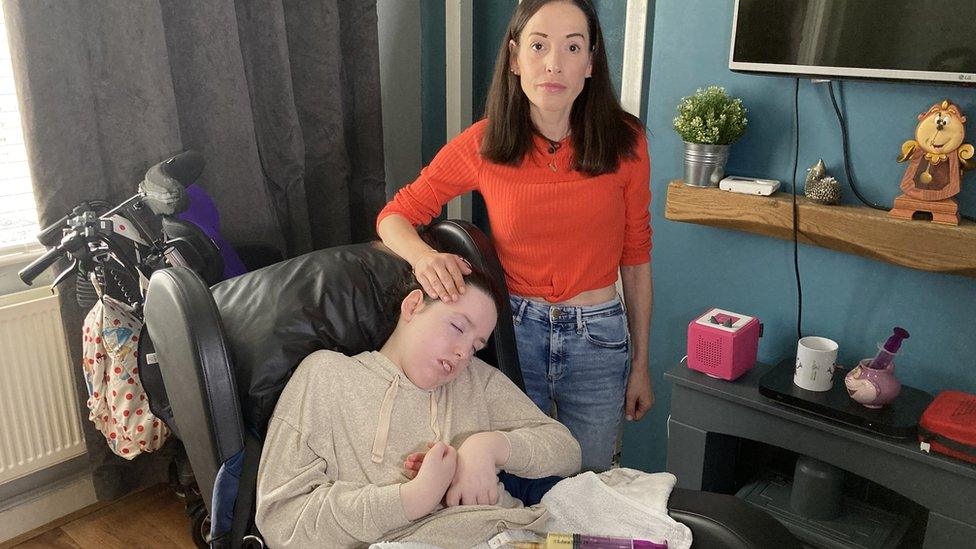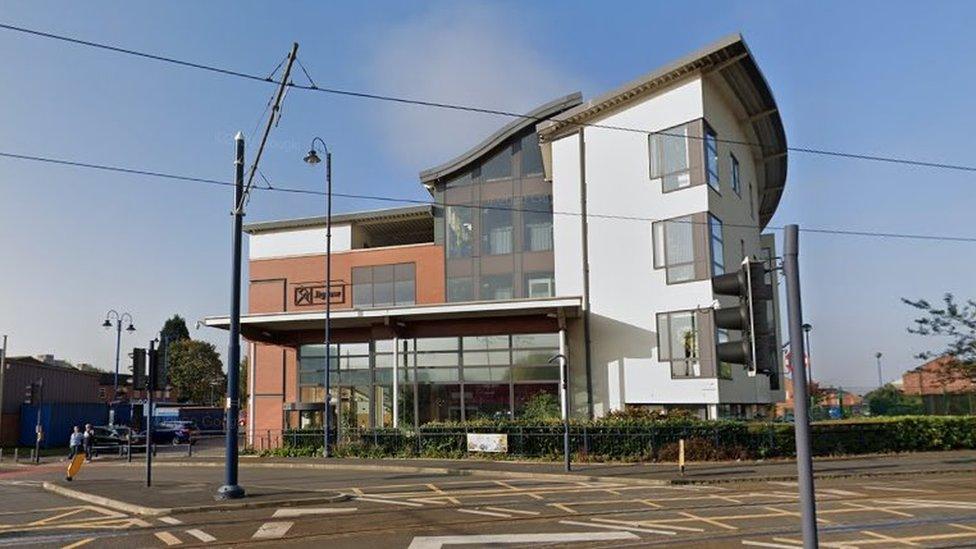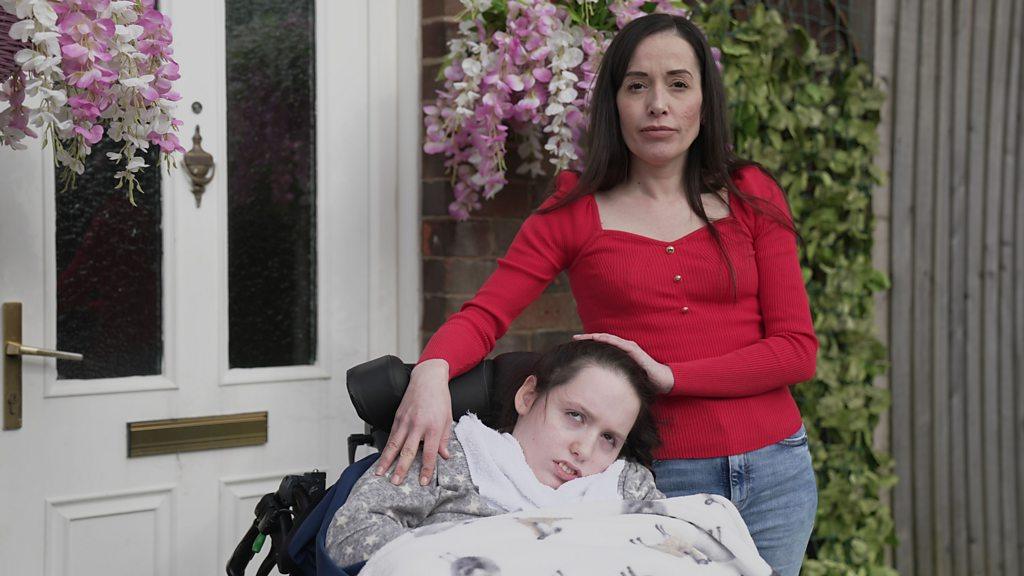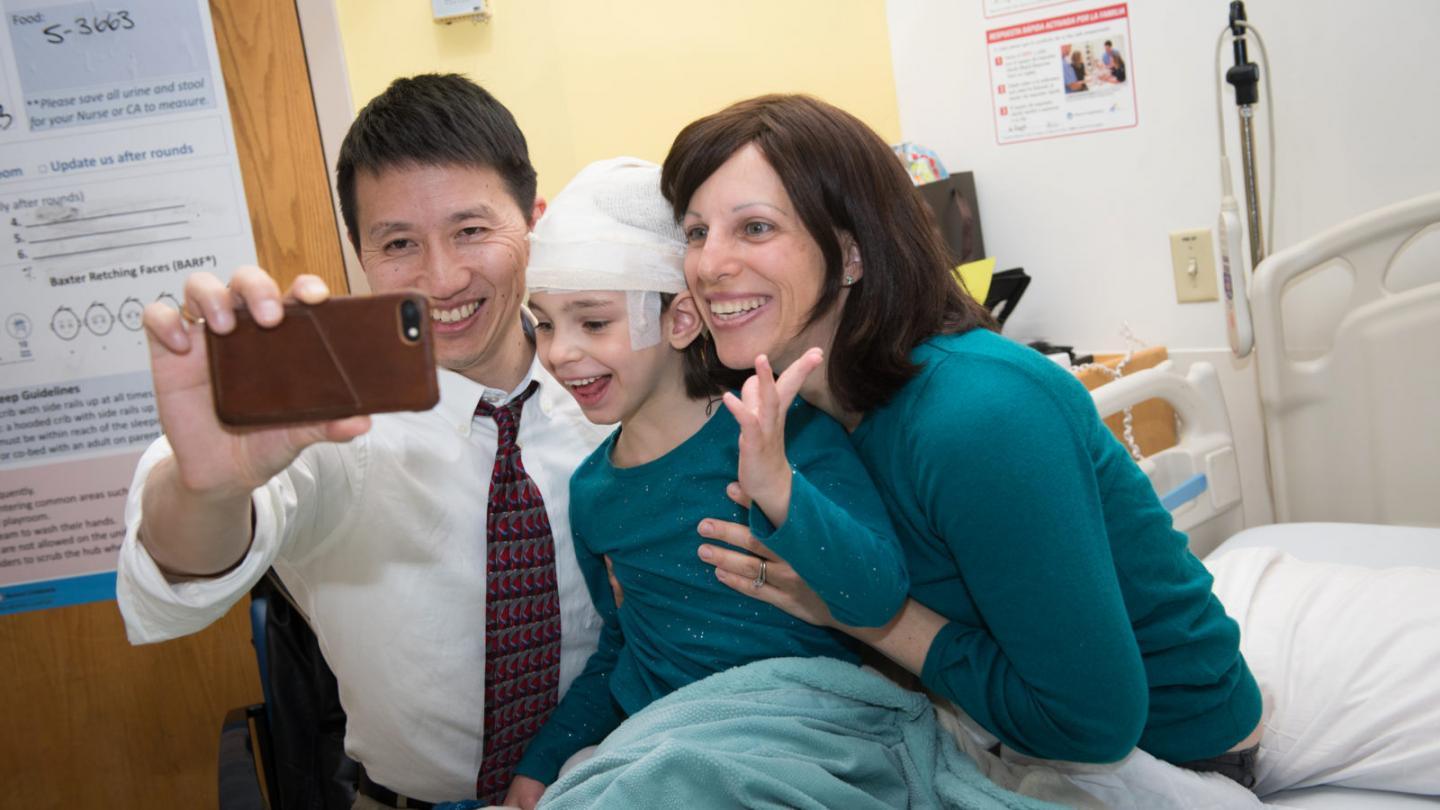Tameside housing group cannot afford extension for girl, mum told
- Published

Adele said the adaptations that had been made already were "not really fit for purpose any more"
A housing association has told the mother of a girl with a degenerative disease it cannot afford to pay for further adaptations to their home.
Fourteen-year-old Molly, from Stalybridge, Tameside, was diagnosed with Batten disease when she was 10.
Her mother, Adele, said their home now has a lift up to Molly's bedroom, but they desperately need more space.
Jigsaw Homes Group (JHG) said while understood her "frustration", it was "limited in what help we can provide".
The company, which owns and manages homes that were transferred from Tameside Metropolitan Borough Council, oversees about 16,500 properties.
The council has agreed the extra room would enhance Molly's life, but also said there was no extra money to help.
Batten disease is incurable and causes seizures, visual impairment and mobility loss.
Adele, who previously told the BBC she was struggling with the high energy bills associated with her daughter's care, said her two-bedroom property had been adapted by JHG as Molly's condition has worsened, but needed further work that would cost up to £50,000.
'World of difference'
She said her daughter had lost her sight and her ability to speak, and now used a wheelchair to move around.
"Molly's prognosis is terminal, so we just take each day as it comes," she said.
"With Molly being such a big girl, she's pretty much got adult equipment now.
"We've got two huge chairs in the lounge, we've got suction machines on top of that, we've got ceiling track hoists.
"Basically, the adaptations are not really fit for purpose any more."
She said an extension would "make the absolute world of difference" as she currently has to move her up and down using the lift and hoist several times a day.
"I can't even leave her to get a drink or make something to eat," she said.

JHG said it had "already worked closely" with the family "to adapt their home extensively"
She said a "downstairs" bedroom and wet room would mean she could have "an open plan kitchen and living space".
"We could have double doors where it could still be peaceful for Molly, but I would be able to watch her constantly without having to spend the whole day by her bed," she said.
She added that as the housing association and council could not pay for the work, she had begun crowdfunding.
A JHG representative said the company "totally" understood "the frustration that Molly and her family must be feeling".
"Together with the local authority, we have already worked closely with them to adapt their home extensively," they said.
"While we appreciate an extension would be welcomed to make her more comfortable, we are limited in what help we can provide."
The council said it did not comment on individual cases but added that there was not "always the public funds available to finance additional home adaptations when an individual already has access to the necessary facilities".

Why not follow BBC North West on Facebook, external, Twitter, external and Instagram, external? You can also send story ideas to northwest.newsonline@bbc.co.uk, external
Related topics
- Published18 July 2022

- Published29 April 2022

- Published12 October 2019
